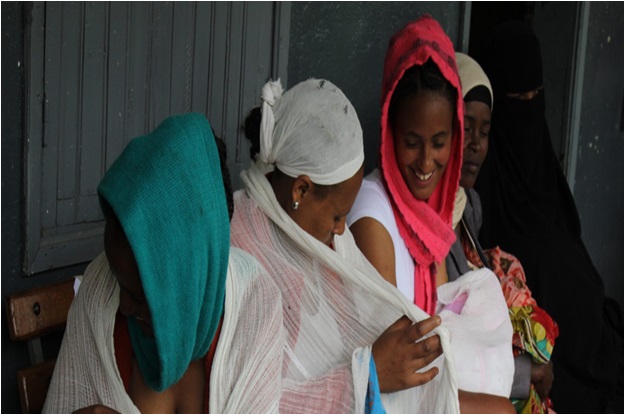
The expansion of health insurance in Ethiopia has been a topic of debate, with proponents arguing that it can improve public health outcomes. By providing access to affordable healthcare services, health insurance expansion can ensure that individuals receive preventative care, timely treatments, and necessary medications.
According to the World Health Organization (WHO) report, between 2015 and 2020, almost 7 million households, equating to 32 million people, enrolled in the Ethiopian government’s Community-Based Health Insurance (CBHI) scheme. Out of these households, 5.5 million were members who paid the yearly premium, while 1.5 million households were sponsored by the government. During this period, the number of new consultations in all health facilities by CBHI beneficiaries increased by over 200%.
As of 2020, there are 1,920 health centers and 245 hospitals nationwide that provide health services to CBHI beneficiaries through contractual agreements. Additionally, approximately 15 percent of these health facilities have established contracts with third-party providers such as the Red Cross, Kenema Pharmaceutical Enterprise, and other private and public pharmacies to address gaps in the availability of essential medicines.
In recent years, Community Based Health Insurance has gained momentum and has been introduced even in remote rural areas of Ethiopia. The community has also become more aware of the importance of being a member of CBHI services.
The Ministry of Health in Ethiopia has stated that it is working closely with the Ethiopian Health Insurance Service (EHIS) to provide quality health services to all citizens and expand accessibility. The ministry and EHIS conducted an evaluation of the past fiscal year’s work performance and the current fiscal year’s plan under the theme “Health Insurance Membership for Common Prosperity.”
During this evaluation, the Service Director General, Tesfaye Worku, mentioned that the EHIS has provided health access to over 54 million citizens in approximately 1,006 woredas (districts) across the country. Out of this total, around 10 million citizens are unable to pay for the service, and the government covers their fees. The Health Insurance Service was initiated in 2011 in four selected states and 13 districts, accommodating 125,142 household members.
As to him, the service has been providing inclusive health service, attempting to produce healthy and productive citizens, ensuring the benefit of women and children as well as reaching out to the unreached are the priority areas leading to the sustainable development goals (SDGs) as far as health concerns are concerned. He added that the service endeavors to provide health insurance service in the remaining districts that have not benefited out of the scheme for various reasons. Ethiopia collects 4.8 billion Birr from health insurance a year.
Health State Minister, Dereje Duguma (MD), on his part said that the Ministry has been working in close collaboration with the Ethiopian Health Insurance Service aiming at providing all citizens with quality health accessibility. In this regard, the government attaches due emphasis to quality health and it is a commendable step to add value to the effort geared towards ensuring the holistic health sector change.
Dereje further stated that Ethiopia is striving to realize the 2030 SDGs in the health sector. However, health service accessibility, quality, and sustainable finance should take a lion’s share so as to succeed 2030 SDGs. Particularly, improving the local financial system using own resource would play a vital role in reducing the challenge of financial risk, which is a major step for providing quality health for all.
He further underlined that conducting national campaign, informing the political leaders about the issue, involving all stakeholders, addressing all districts especially those which are seriously exposed to conflict and drought would help come up with outcomes for realizing the SDGs in the health sector.
Moreover, one of the key ways in which health insurance expansion can improve public health is by increasing access to preventative care. This includes regular check-ups, screenings, and vaccinations. With insurance coverage, individuals are more likely to seek preventive services, helping to detect and address health issues in their early stages. By identifying and treating conditions earlier, the overall health of the population can significantly improve.
Accordingly, health insurance expansion ensures that individuals have timely access to essential treatments. Without coverage, many individuals delay seeking medical care due to financial constraints. This delay can lead to worsening health conditions and increased healthcare costs in the long run. With expanded insurance coverage, individuals can receive necessary treatments without substantial financial burdens, thus avoiding further health complications.
Expanding health insurance coverage to a larger population comes with financial implications. Governments and healthcare systems need to allocate sufficient resources to support the increased demand for healthcare services. By prioritizing the expansion of insurance coverage, it is possible take significant strides towards improving public health and creating a healthier society for all.
Expanding insurance coverage also necessitates having an adequate network of healthcare providers who accept the newly insured patients. Ensuring that there are enough primary care physicians, specialists, and hospitals willing to accept the expanded insured population are essential for people to access the care they need in a timely manner, the experts stressed.
The Ethiopian government has been actively involved in supporting CBHI, both through sponsoring households and covering fees for those unable to pay. This commitment demonstrates the government’s dedication to ensuring the health and well-being of its citizens. Overall, the Community-Based Health Insurance service in Ethiopia has made significant progress in expanding access to healthcare and improving health outcomes for millions of people. By providing affordable coverage, increasing healthcare facilities, and addressing medication gaps, CBHI has played a crucial role in promoting the health and well-being of the community.
BY TEWODROS KASSA
The Ethiopian Herald November 30/2023





